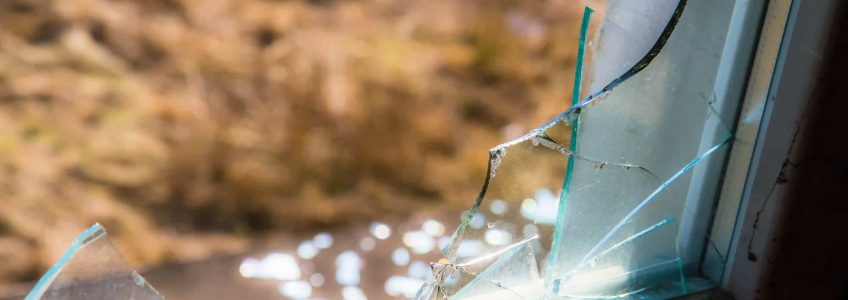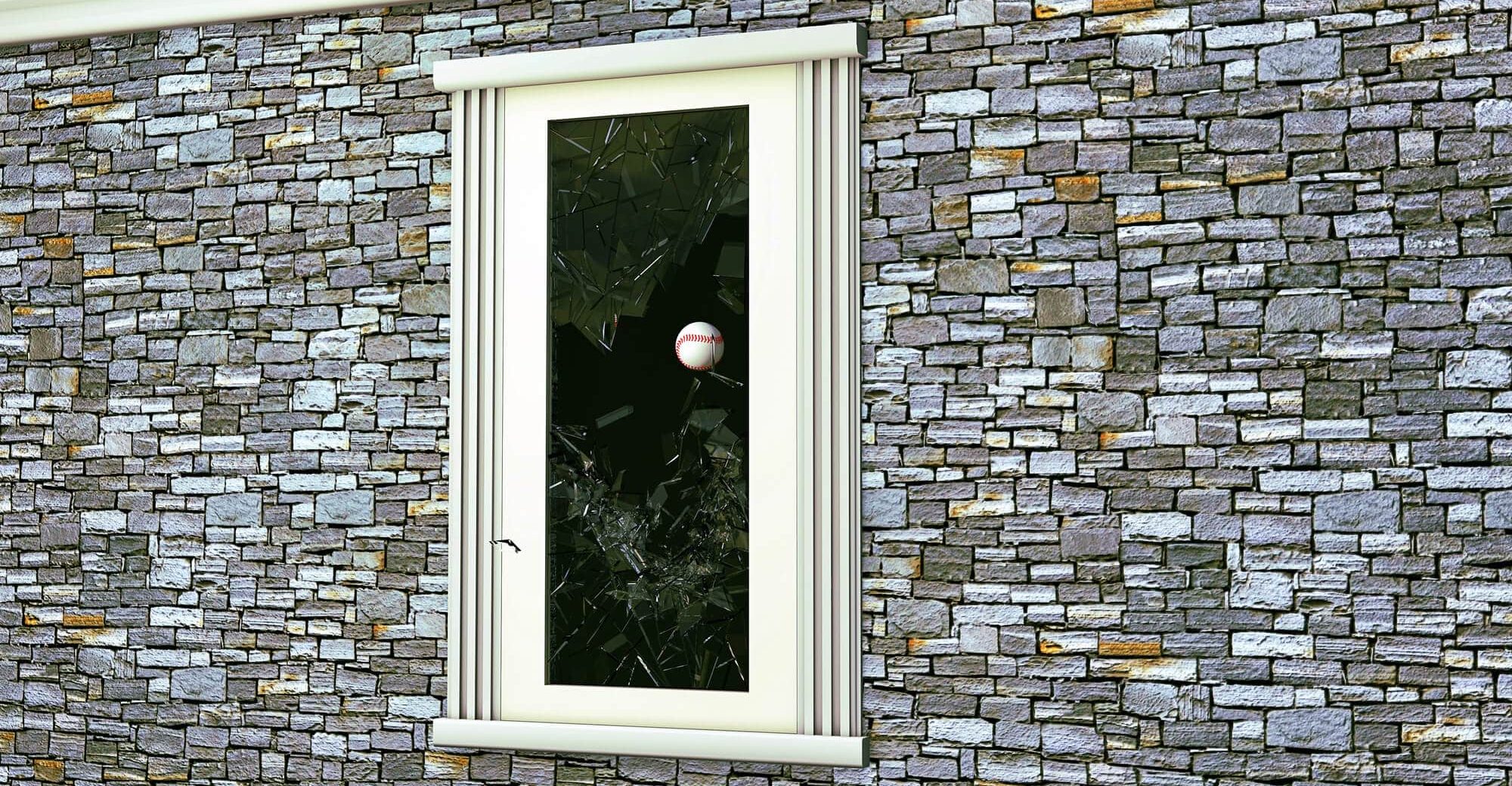
Over the years, your windows can take a beating, whether it’s from storms, wind, or physical forces. When extensive window damage occurs, paying for repairs on your own dime can be incredibly costly, especially without adequate homeowners insurance coverage. The policy you hold will determine what damages are insured and help calculate your potential out-of-pocket window repair costs.
What Caused Your Window Damage?
The first question your homeowners insurance company will ask when a window gets broken is what caused the damage? Window damage can occur in several ways ranging from intense storms to simple accidents. Although window damage is relatively common, it’s not always covered by homeowners insurance.
You’ll need to determine the type of homeowners insurance coverage you have to uncover the final cost of repairs after window damage. There are two primary homeowners insurance policies (or a mixture of the two) that can include or exclude window damage insurance cover:
- Open-perils: As the name implies, open-peril policies typically insure against any covered loss, except those expressly excluded. Open-peril is the most comprehensive coverage homeowners can acquire, so it is usually more costly.
- Named-perils: Named-peril policies only cover risks explicitly outlined within the contract. In this case, you might have to pay out of pocket for certain damages to your windows.
For the most part, window damage due to storms and other weathering events are insured under most open-peril and named-peril policies. However, don’t count on your insurance covering replacements of old, failing window systems. Ensure you read your insurance policy carefully before signing off on any agreements so that you know you’re insured in case of accidents, theft, or unforeseen disasters. Work with an experienced window repair company to receive valuable insurance claims assistance when damage occurs.
With that said, let’s dive further into the few circumstances where window damage might not be covered by a typical homeowners insurance possible:
1. If Something Breaks Your Window:
Standard homeowners insurance policies most commonly cover unforeseen circumstances such as storms and weathering events. The “thing” that breaks your window is the “peril” that we mentioned above. Some weather-related perils your homeowners policy probably insures will include:
- Hail storms
- High winds
- Fire
- Certain storms and weather events
Not all weather conditions are covered under named-peril policies, so it’s crucial to read through the contract to know exactly what’s insured. If you live in an area where heavy storms, like hurricanes or monsoons, are common, you might want to consider an open-peril policy. In doing so, you guarantee coverage if, God forbid, your home and windows are severely damaged during one of these storms.
2. If Someone Breaks Your Window:
Things get a little tricky when an actual person causes physical damage to your window. If the damage is due to an event such as theft, there is a high likelihood that your insurance company will cover the repairs.
However, if a neighbor or guest on your property breaks the window, this is where things get a little muddled. Depending on the homeowners insurance of the window-cracking culprit, you might wind up having to pay for the repairs out-of-pocket, depending on their coverage and deductibles.
3. If You Accidentally Break Your Window:
Accidents are bound to happen, and most homeowners know that Murphy’s Law is almost always in effect when it comes to maintaining their property. If you ever find yourself accidentally damaging window panes within your home, those issues may not be insured under named-peril policies.
If you accidentally fall into a window or your child breaks the glass with an unruly ball, the biggest likelihood is that you will be utilizing your own savings to take care of repairs. That is unless you have an expensive, open-peril policy in your name.
It’s important to note that regardless of your policy type, most homeowners insurance companies will not cover regular wear and tear or common window failures, like failing seals or old age issues.
4. If You Break Your Neighbor’s Window:
Hopefully, this issue never happens, but if it does, there is a slight chance that your homeowners policy will cover damage to another neighbor’s home. Damage to the property next to you can occur in several ways, but typically it’s due to a loose ball or falling tree limb. Contact your insurance agent to determine what’s covered when an accident happens with your neighbor’s windows or home.
Dealing With Deductibles
After an issue occurs and you determine that your homeowners insurance policy covers the type of damage you’re experiencing, it’s time to file a homeowners insurance claim. A homeowners insurance deductible denotes the amount of out-of-pocket money you’ll have to supply before insurance companies pay on a claim.
The easiest way to understand your deductible is by looking at an example: Imagine your deductible is $1000, but the cost of window repairs is only $650. In this case, your insurance would not cover any damages, so it makes more sense to settle the issues with your savings and skip on filing a claim.
If the estimated repair cost exceeds your deductible, it’s necessary to file a claim so you can get back the money you deserve. With extensive window damage, don’t hesitate to contact both your insurance company and trusted window repair company to fix the problem right away before it grows out of control and costs you more money in the end. The insurance claims process can be time-consuming and stressful, so if you can avoid it, that’s the best option.
If you’re still confused about how your deductible works or whether you’ll be insured in case of window damage, there are plenty of resources out there to help. National insurance companies like Allstate offer valuable online tools and resources to teach new or inexperienced homeowners how to interact with their insurance companies. You can view more information from Allstate about insurance and window damage here.
Conclusion
Window damage can occur in several ways, and dealing with deductibles and homeowners insurance companies that keep dragging their feet can cause quite the headache. Before you begin to file a claim for your window damage, take a closer look at your homeowners insurance policy to ensure that the damage incurred will be covered.
Don’t waste time and money on pointless insurance claims when improvement costs are actually less than what you owe on your deductible. When damage occurs, the best thing to do is call a trusted window contractor to assess the damage and estimate the cost of repairs.
The right window repair company can assist you in filing insurance claims when necessary or by simply repairing your windows at an affordable rate. When you need window damage repair services, contact Advantage Construction for expert repairs and individualized assistance with insurance claims.

